Question: I need codes in C++. It all that I have below for this assignment. Please help me with something. Thanks. 3.1 Declare the Stack class
I need codes in C++. It all that I have below for this assignment. Please help me with something. Thanks.
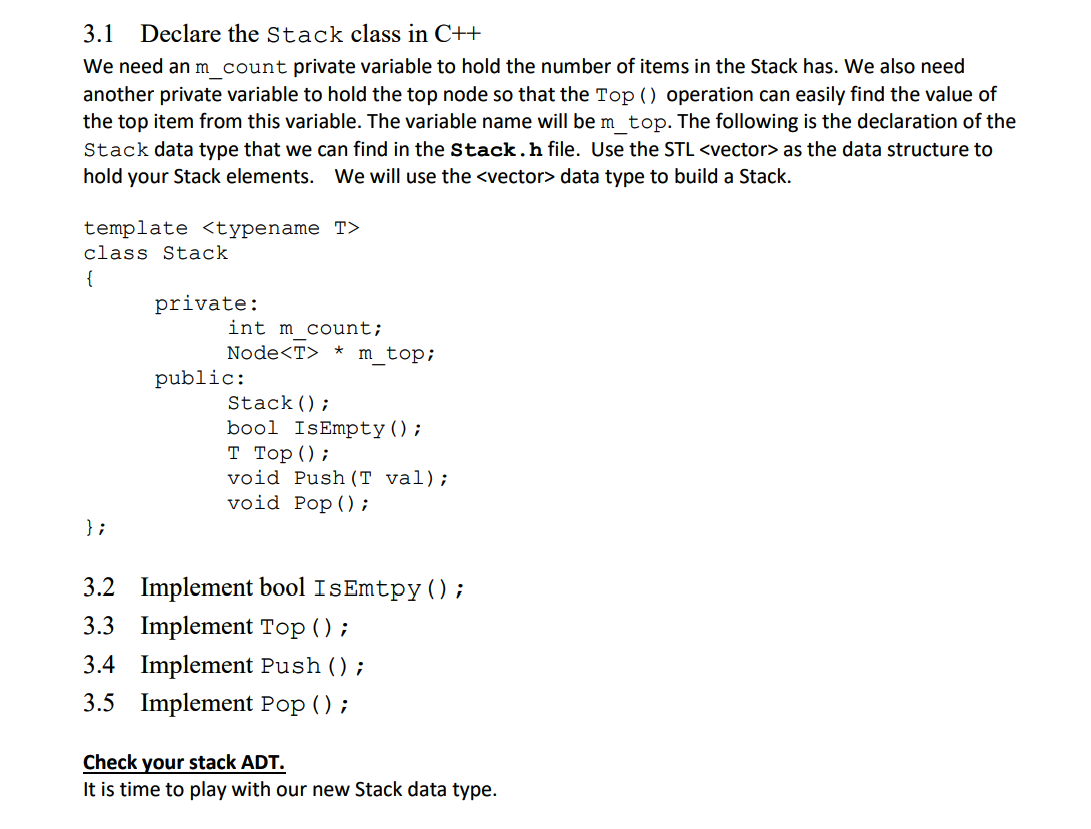
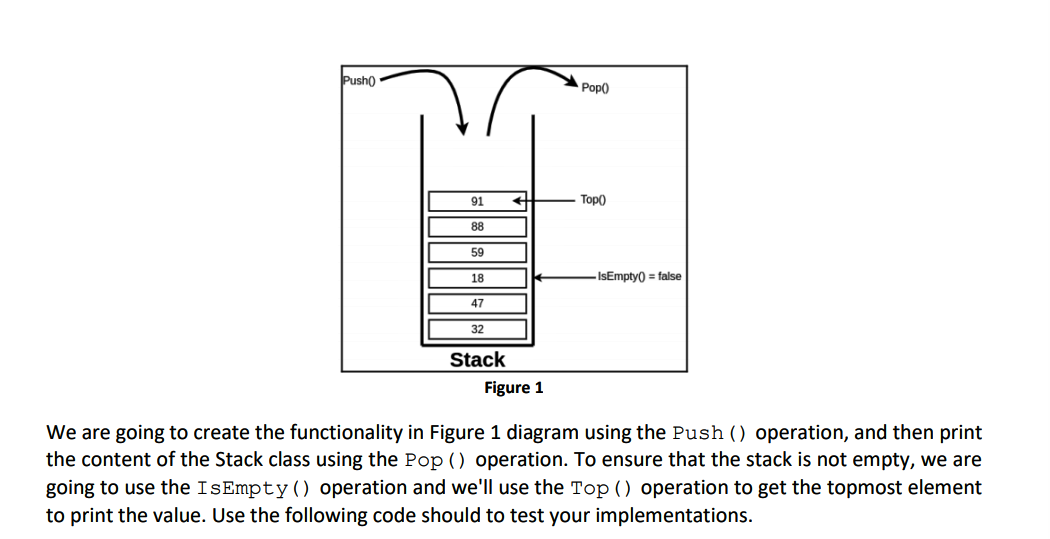
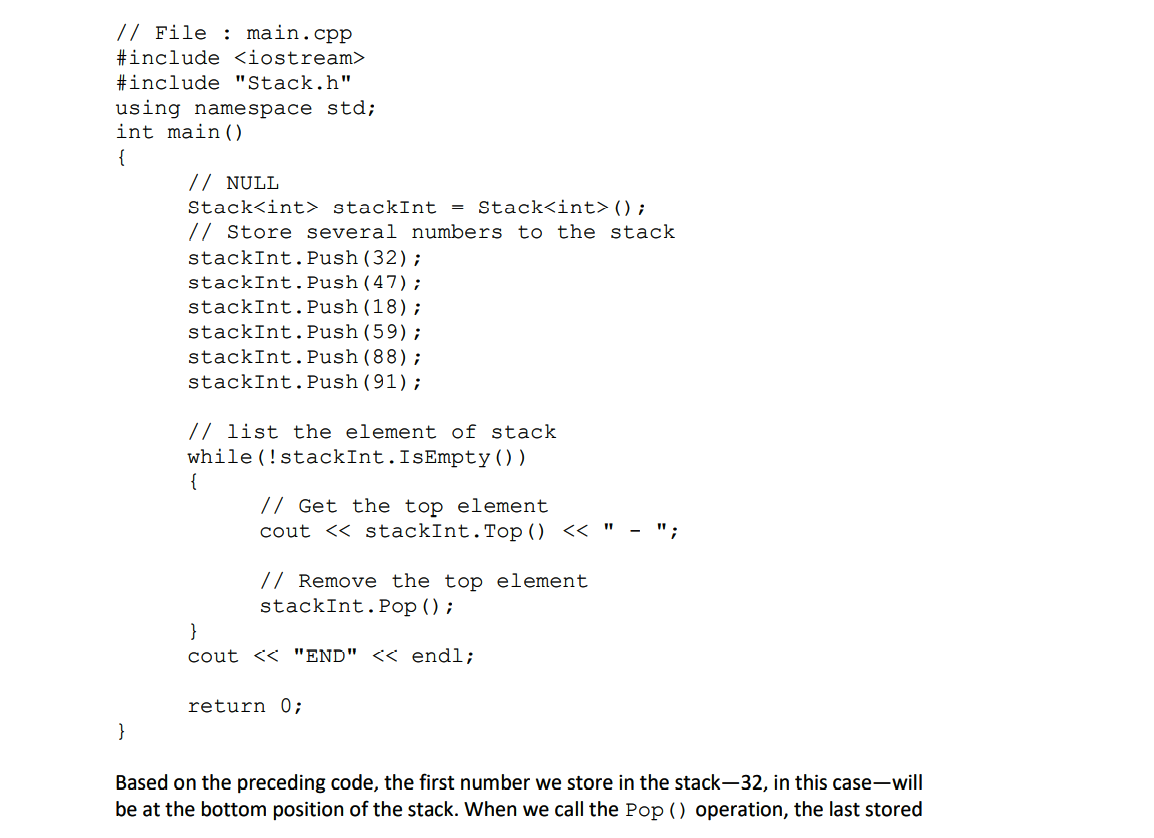
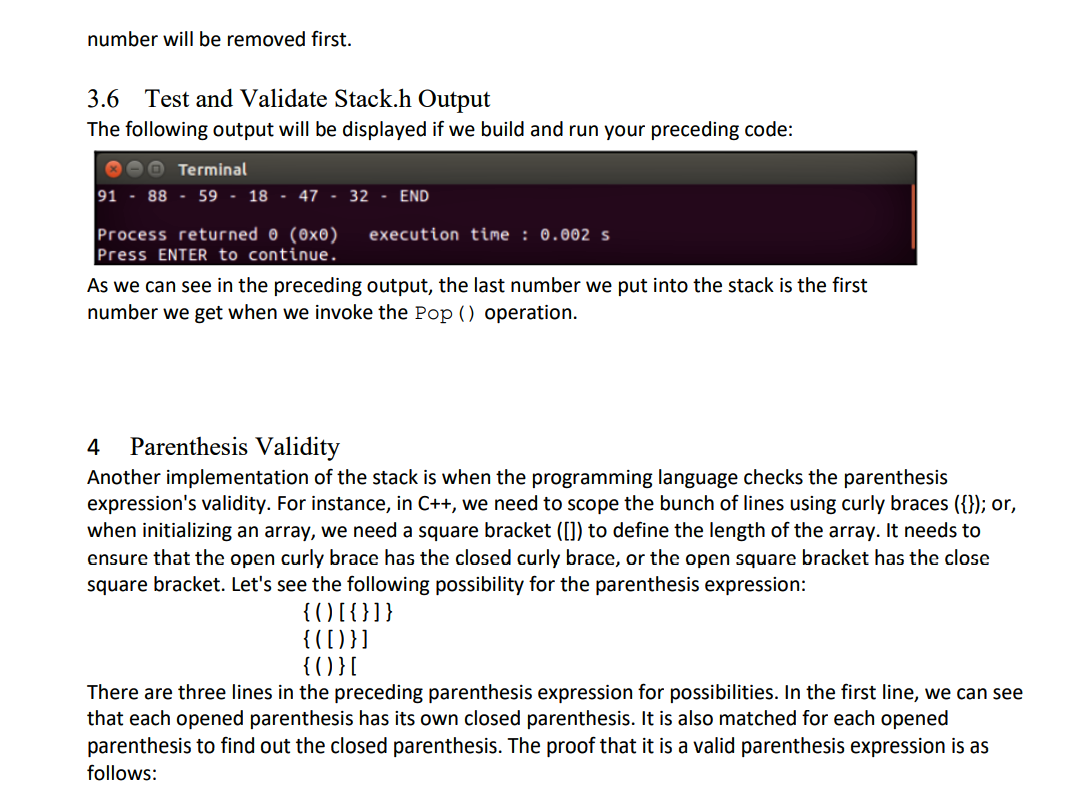
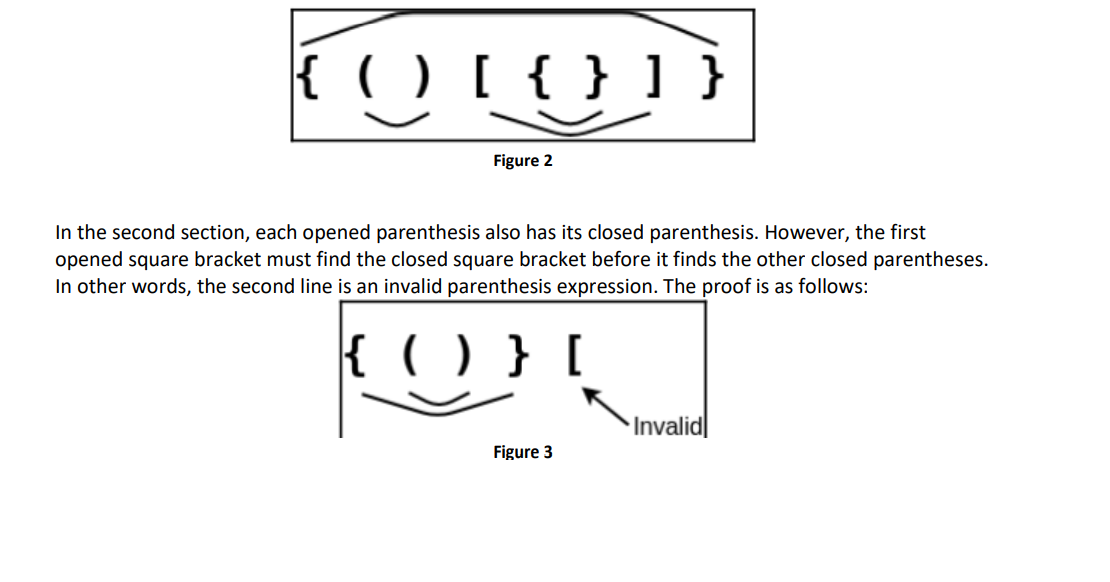
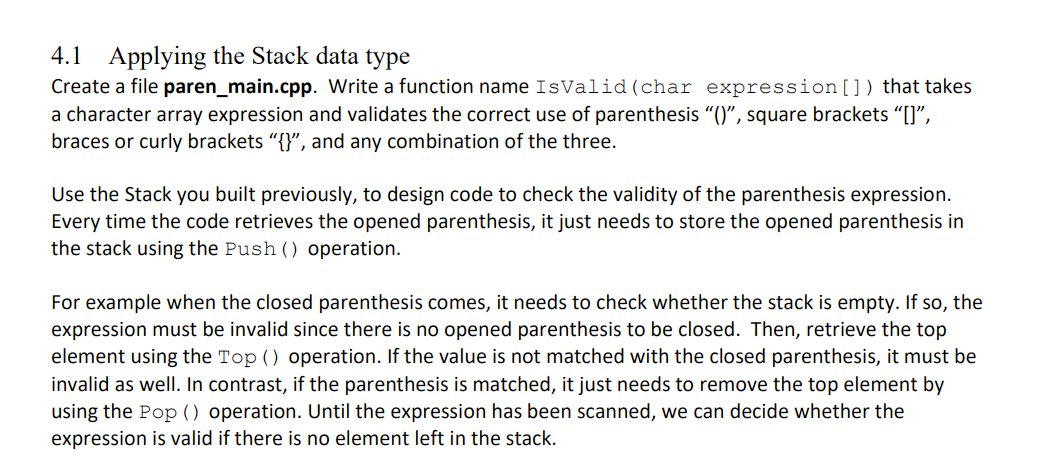
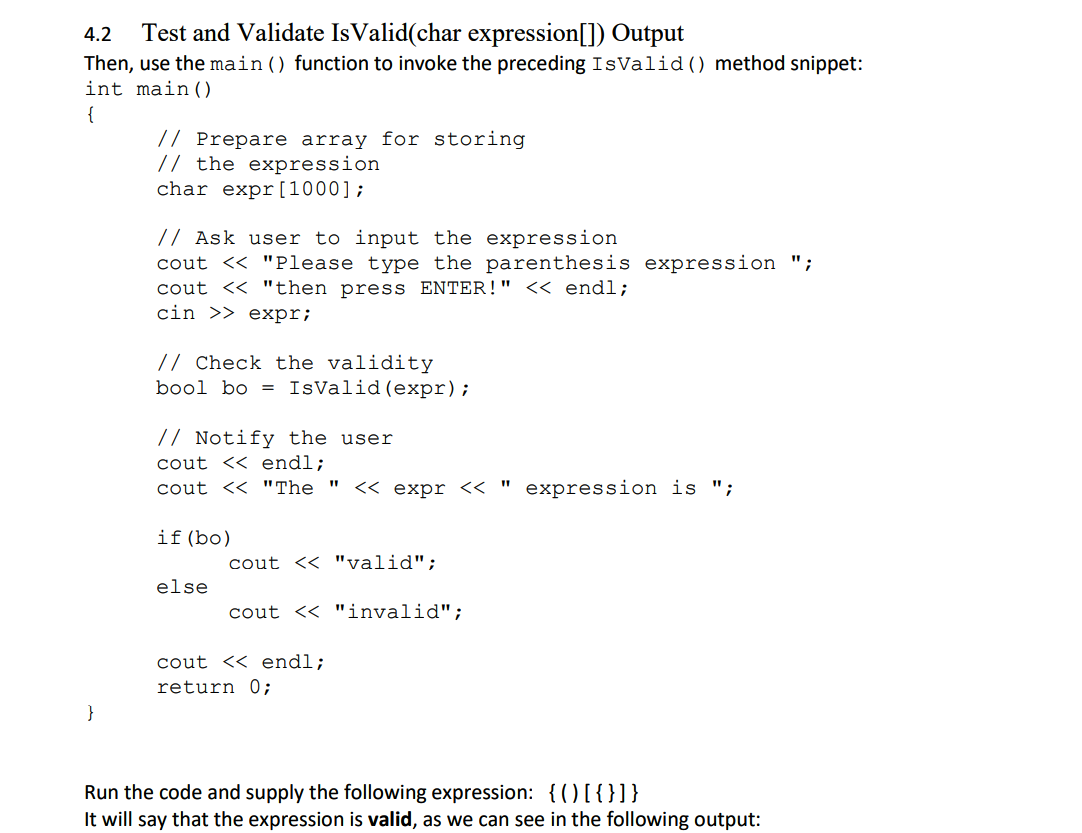

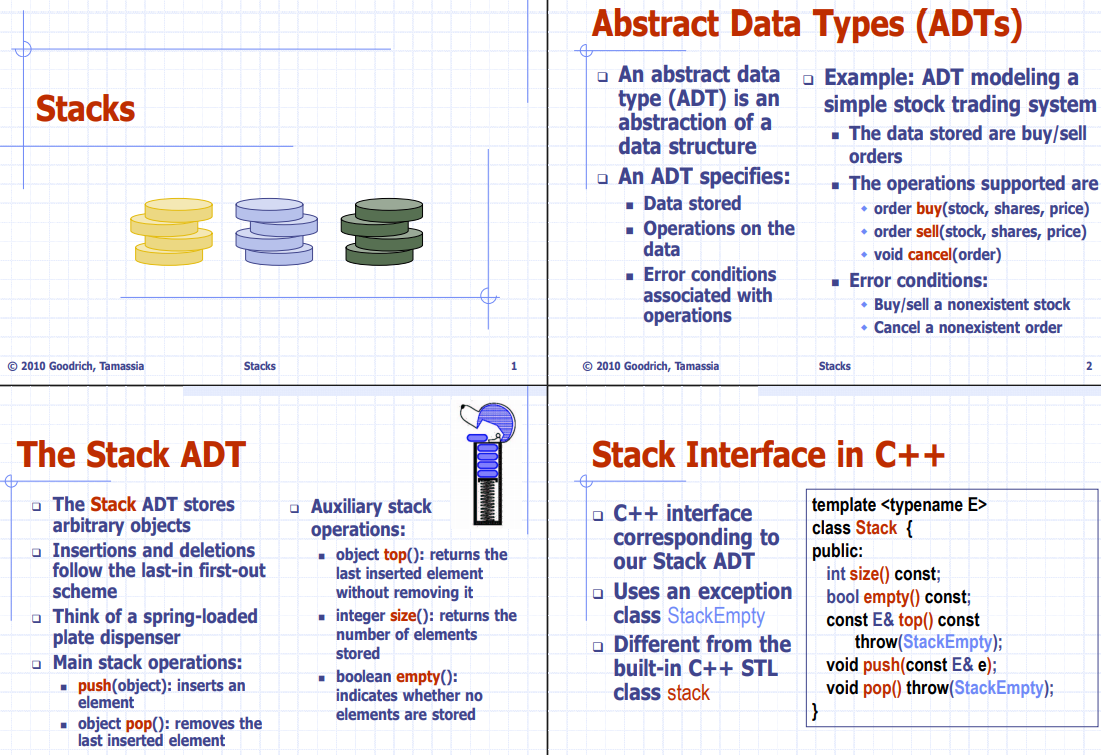
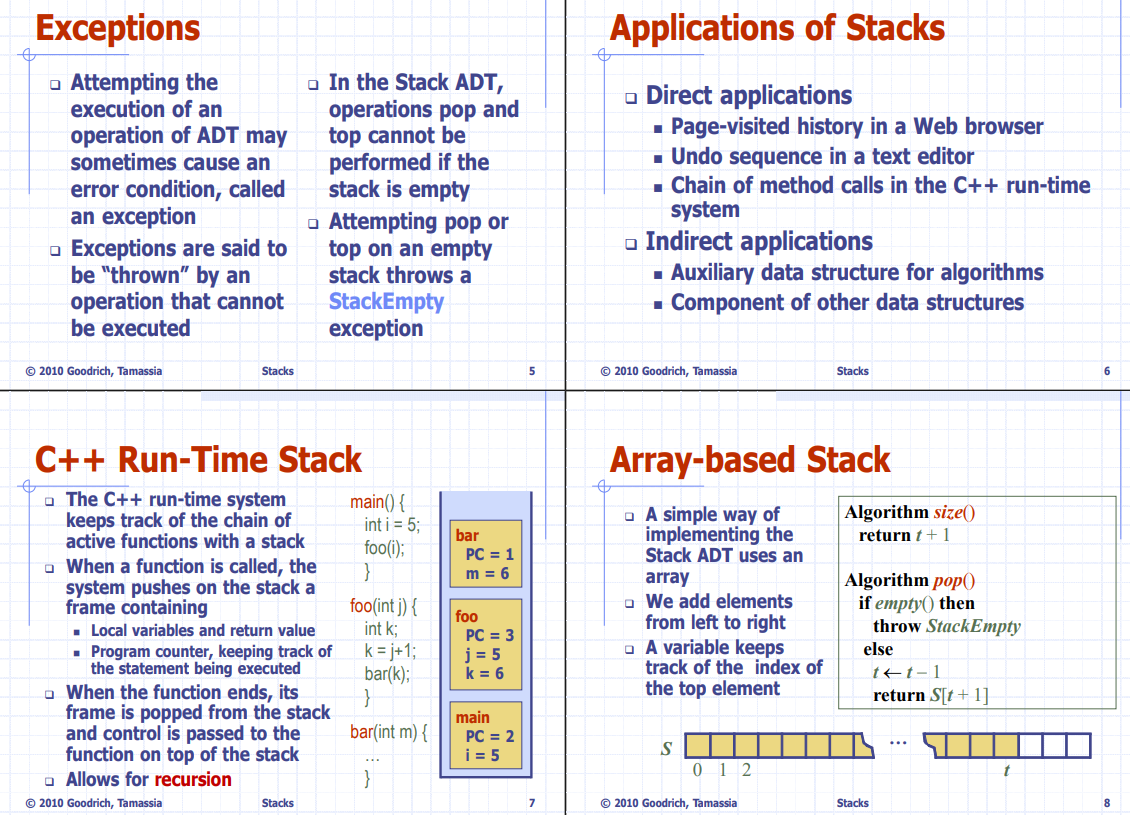
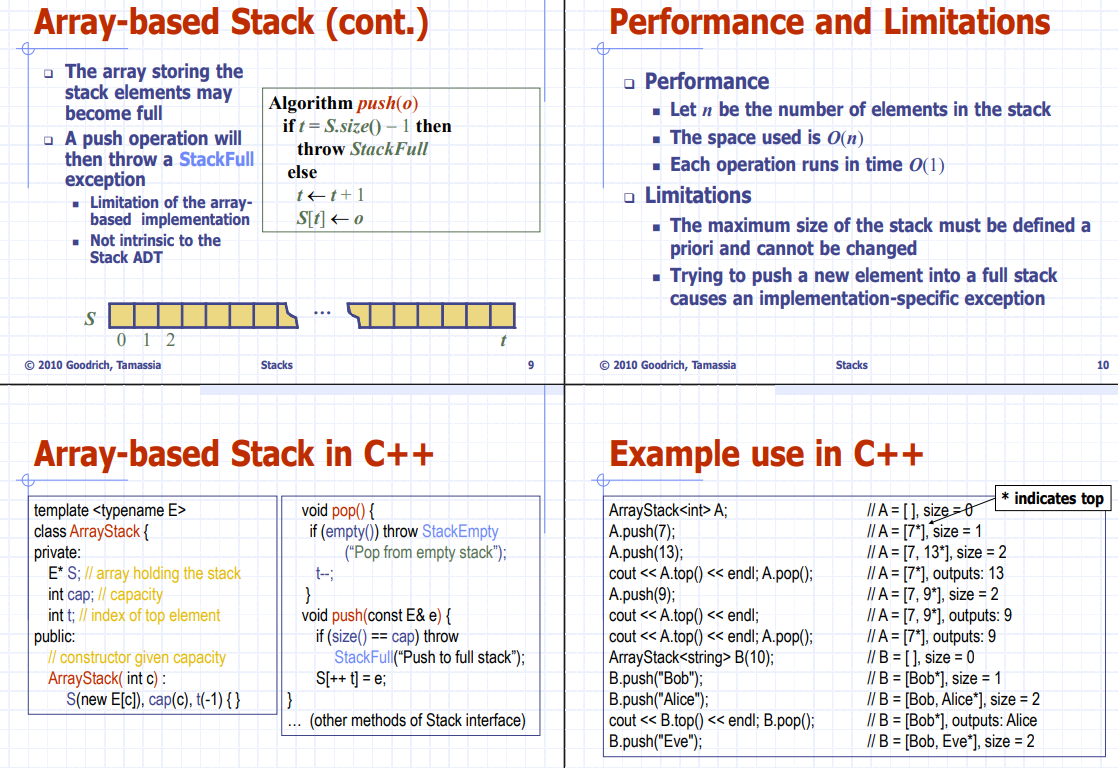
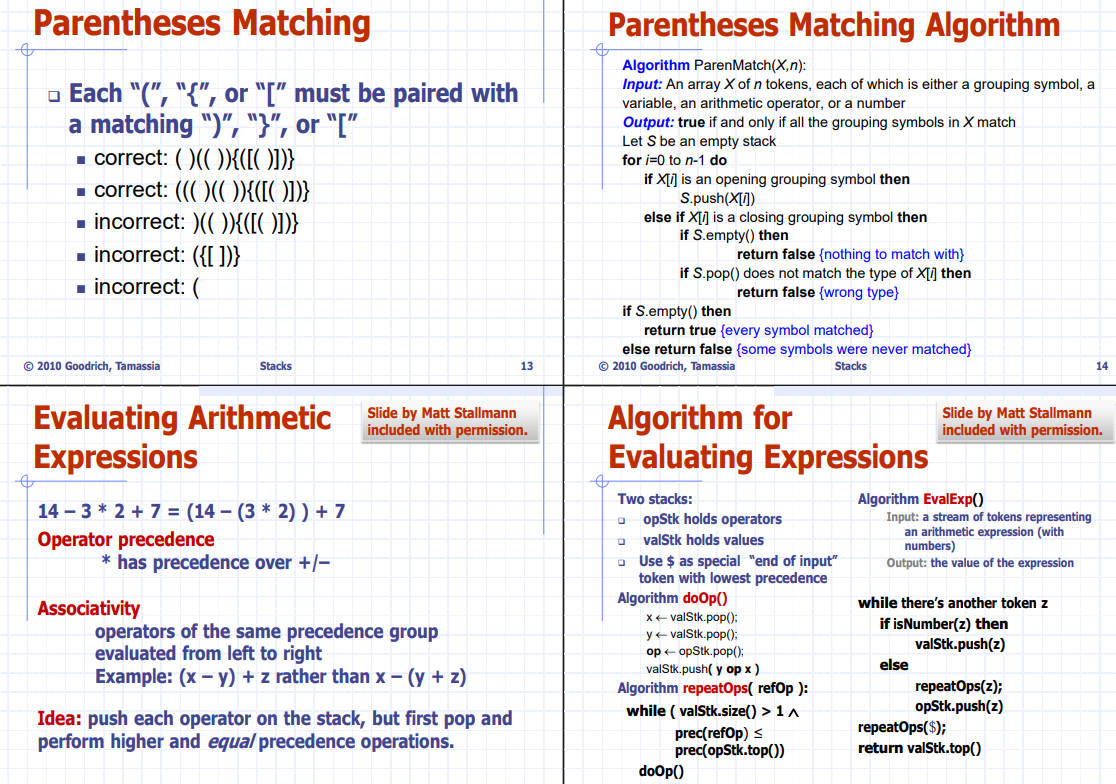
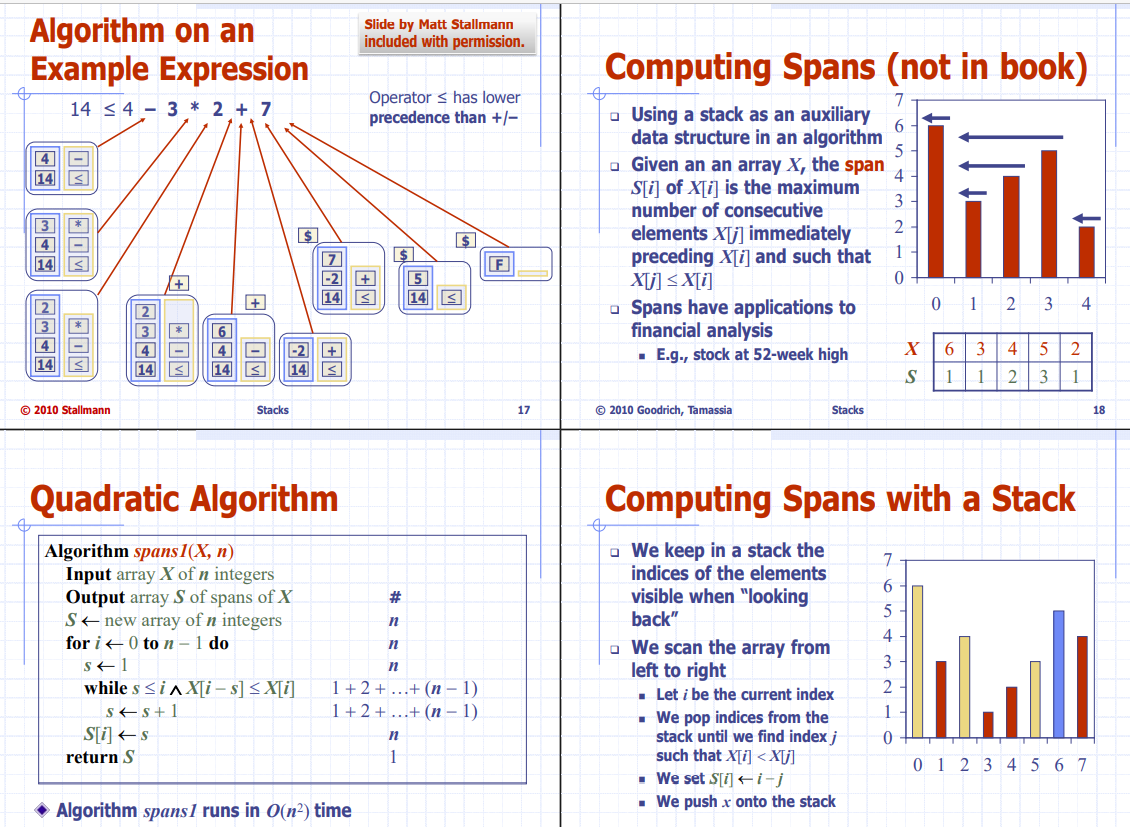
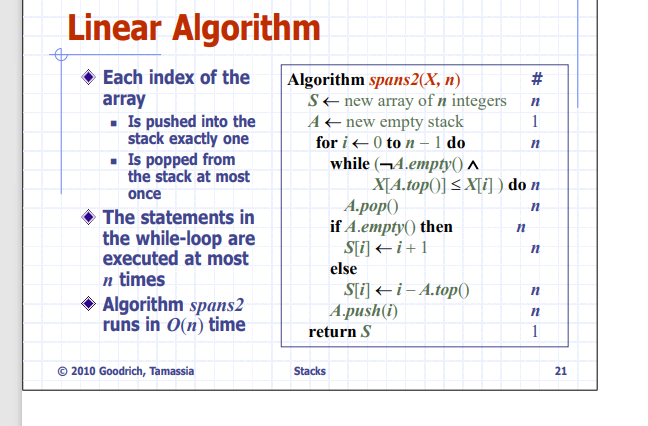
3.1 Declare the Stack class in C++ We need an m_count private variable to hold the number of items in the Stack has. We also need another private variable to hold the top node so that the Top () operation can easily find the value of the top item from this variable. The variable name will be m top. The following is the declaration of the Stack data type that we can find in the Stack.h file. Use the STL
Step by Step Solution
There are 3 Steps involved in it

Get step-by-step solutions from verified subject matter experts


